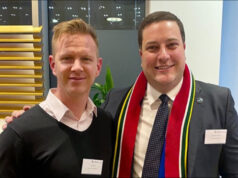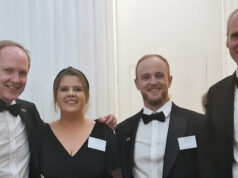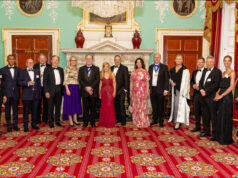PwC’s Chantelé Carrington represented the South African Chamber of Commerce on the panel of the Afro Business Expo on 31 July. The expo was a first in Reading, the epicentre of the Thames Valley, which is the home to some of the globe’s most successful brands and innovative SMEs. Alongside Chantelé, Lead Africa Financial Services and Southern Africa; PwC UK Africa Business Group, the panel included Rt. Hon. MP Alok Sharma, Paddy Docherty, CEO of Phoenix Africa, and others who contributed to what turned out to be a marathon debate over Anglo-Africa trade relations. Chantelé is proudly South African and passionate about how business can support Africa’s development and growth. Her key messages included:
The role of the UK in Africa relationships
Africa is a very proud continent and have a culturally independent entrepreneurial mindset. The key to good relationships in Africa is mostly to spend time understanding and enabling a cultural fit, and gaining trust and respect for collaboration.
PM David Cameron responded to Chantelé’s question at the recent Commonwealth Games Business Conference in Glasgow during a Q&A session with delegates “how will the UK will win gold in Africa by boosting trade and investment in what has the fastest growing and youngest population in the world”. He said some of our aid should not be tied to trade – that was the old way, the bad way – but some of our aid should be about helping economies to develop by investing in crucial infrastructure. There’s a lot more we can to do to encourage that intra-African trade, and using parts of our aid budget appropriately to help that happen.
The importance of Responsible Investment
There is no doubt these days that you invest in Africa for the long term. Investors must consider their impact of their investments on society and contribute to a winning and growing sustainable economy. Corporate social responsibility should be an economic thread that runs through your accounts and, in the end, contribute to your profit line. The Total Impact Measurement and Management (TIMM) framework can help business leaders and stakeholders understand how a business’ activities contribute to the economy, public finances, the environment and wider society.
The impact of Megatrends
Africa is one of the fastest growing regions of the world, both in economic and population terms. We will add another billion people to the world’s population by 2025, with 50% of them coming from Africa. By 2050 Africa’s median age will be 25 – the lowest in world; in contrast with Europe’s which will be 46. The 21st century, i.e the Africa century, will see a significant shift as countries such as South Africa, Nigeria and Angola emerge as serious players in the world market. For global companies to continue growing and to maintain their market share, they need to look seriously into Africa and forge new relationships.
Investing in South Africa
There are currently many questions around immigration, land reform and the Securities Bill, but looking back on how South Africa has developed over the years, it has shown positive experience with a high number of indicators such as a talented and educated workforce, growth of the middle class, good infrastructure, liquid markets and low trade costs, to name a few. FDI is looking positive. It is clear that the opportunities in SA outweighs the risks.
The expo was a great opportunity to connect people, ideas and opportunities supporting Africa’s growth. Some food for thought – if you are a leader, pioneer or innovator, the time is now – standing still is falling behind in today’s Africa.










